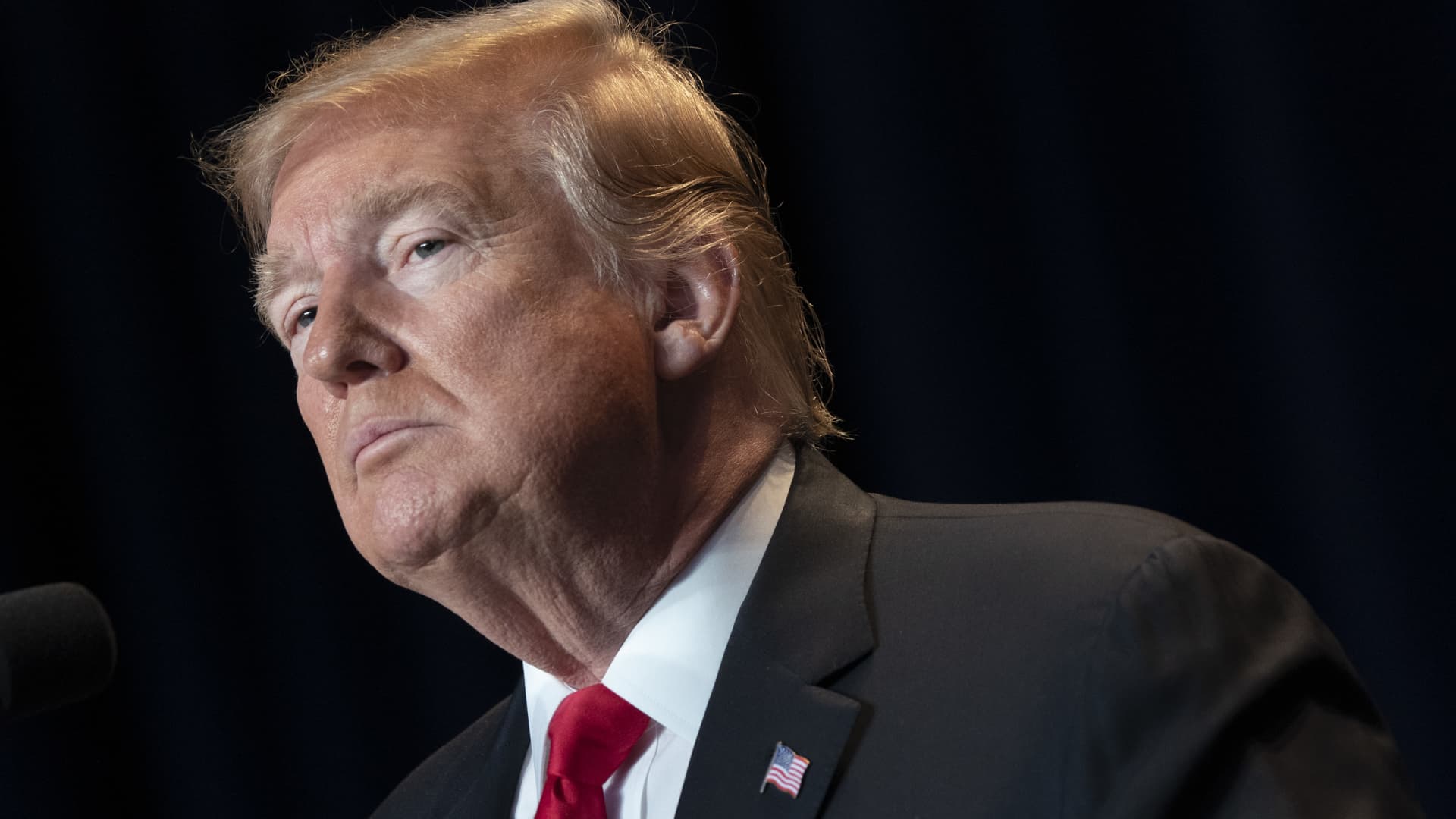Citing former President Donald Trump’s history of verbally attacking people in the legal system, a federal judge ruled Thursday that a jury will be anonymous at his upcoming civil trial for allegedly defaming a writer after she accused him of raping her.
“Mr. Trump repeatedly has attacked courts, judges, various law enforcement officials and other public officials, and even individual jurors in other matters,” Manhattan U.S. District Judge Lewis Kaplan wrote in his order.
Kaplan noted that Trump’s recent calls for public protests over his belief that he will soon be indicted in an unrelated criminal probe in New York “has been perceived by some as an incitement to violence.” Trump in that probe is being eyed for a hush money payment to porn star Stormy Daniels in 2016.
“If jurors’ identities were disclosed, there would be a strong likelihood of unwanted media attention to the jurors, influence attempts, and/or of harassment or worse of jurors by supporters of Mr. Trump,” Kaplan wrote.
Kaplan said he would keep secret the names, addresses and places of employment of prospective jurors for the rape defamation trial, which is set to begin April 25.
Writer E. Jean Carroll accuses Trump of slandering her after she wrote a 2019 magazine article that said he raped her in a dressing room of the Bergdorf Goodman’s department store after a chance encounter there in the mid-1990s.
Her lawsuit also makes a claim of battery for the purported assault under a new New York law that temporarily lifts the statute of limitations for old rape and molestation claims.
Read more of CNBC’s politics coverage:
Trump denies the allegation, which was made when he was president. He claimed Carroll lied about it because she was motivated by political animus and a desire to sell copies of a book that detailed the alleged attack.
Neither Trump nor Carroll had objected to Kaplan’s suggestion two weeks ago that the case be tried before an anonymous jury.
But the Associated Press news service and The Daily News in New York opposed that idea in a court filing, which cited the presumptive right to public access to information about the jury members.
In his ruling Thursday, Kaplan noted that Trump recently made critical statements about the forewoman of an Atlanta, Georgia, grand jury that heard evidence of his efforts to reverse his 2020 election loss in that state, and several years ago about the foreperson in his ally Roger Stone’s criminal trial jury.
Kaplan also wrote that some of the 1,000 people arrested for the Jan. 6, 2021, Capitol riot “have argued that their actions were attributable to” what was perceived “as incitement by Mr. Trump.”
The ruling noted that the upcoming trial in Carroll’s suit is likely to get even more media attention than the the case already has received and that Kaplan was obliged to consider “the likely effect on jurors.”
“And [the judge] cannot properly ignore the significant risk that jurors selected to serve in this case will be affected by concern that they could be targeted for unwanted media attention, outside pressure, and retaliation and harassment from persons unhappy with any verdict that might be returned,” Kaplan wrote.
Kaplan said the right to public access to jury information is not unqualified.
He ordered that jurors selected for trial will be kept together during recess and lunch, and taken to undisclosed locations which they then will leave to return to their homes each day.





